What Is Color Correction Makeup Technique?

CEO/Founder Of Bela Beauty College
Colour correction makeup is a technique that uses specific colors to neutralise skin discoloration, like redness or dark circles, for an even base. It’s essential for achieving a smooth, natural finish before applying foundation or concealer.
What Is Corrective Makeup?
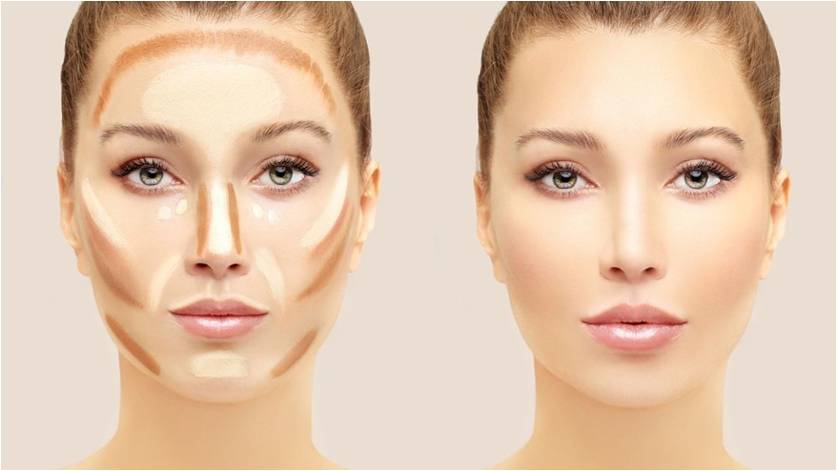
Corrective makeup is a method of enhancing someone’s natural features by balancing and minimising imperfections. It helps:
- Even out the complexion
- Enhance symmetry in the face
- Conceal blemishes, discoloration, and uneven skin tone
At Bela Beauty College, we teach this technique not just as a trend — but as a foundational skill every beauty pro should master.
What Is Color Correction Makeup Technique?
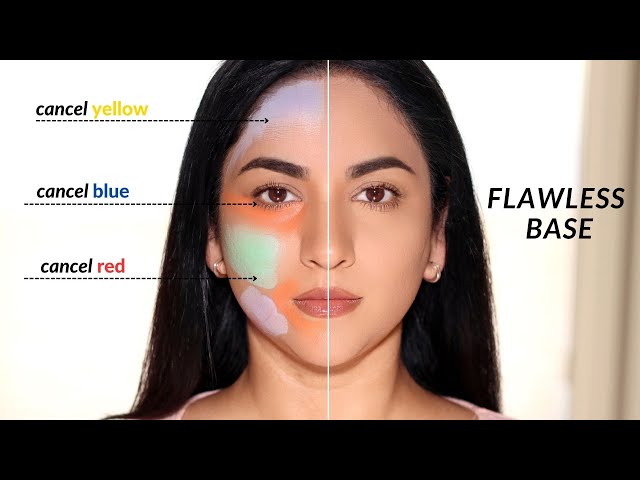
Color correction is a subset of corrective makeup. It uses color theory to cancel out skin discolorations using complementary shades.
Think of it like this:
- Red cancels green
- Blue cancels orange
- Purple cancels yellow
These pairings are how we neutralise the colors that show up in unwanted spots — like redness from acne, blue under-eye circles, or yellow undertones in dull skin.
Why Color Correction Is a Game-Changer in Professional Makeup
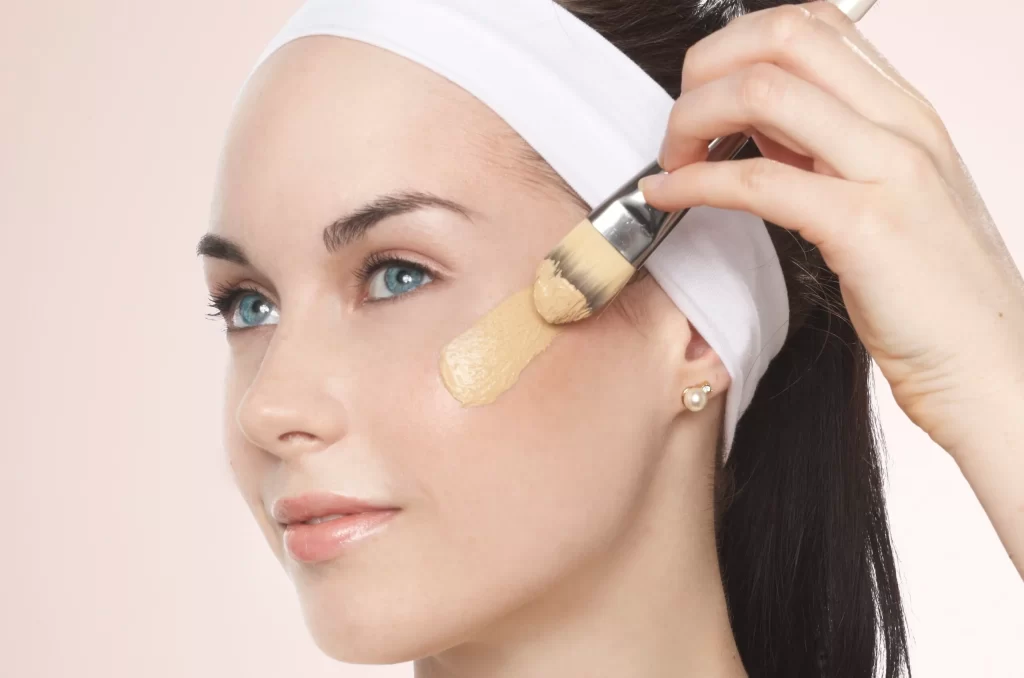
This isn’t just a hack — it’s a technique that elevates your entire look. By correcting skin tone before applying foundation:
- You use less product
- Your base looks more natural
- You achieve long-lasting coverage
- You enhance the skin, not mask it
Especially useful for bridal makeup, editorial shoots, and clients with hyperpigmentation or sensitive skin tones.
Understanding Color Theory in Makeup
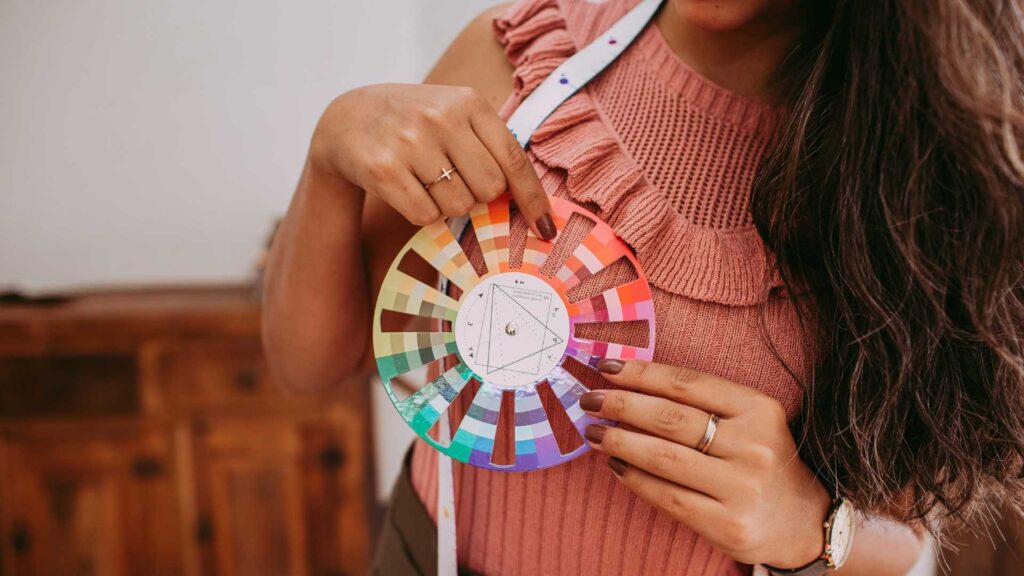
Before you pick up a product, understand this:
Color correction makeup is based on the color wheel.
Complementary Colors (What Cancels What)
- Green cancels red (great for acne, rosacea)
- Peach/Orange cancels blue/purple (perfect for dark circles)
- Yellow cancels purple or mild redness
- Lavender cancels yellow/sallow tones
- Pink cancels dullness in fair skin
Knowing which color to use for which problem is the difference between a flawless base and one that looks off.
Common Skin Issues Color Correction Can Fix
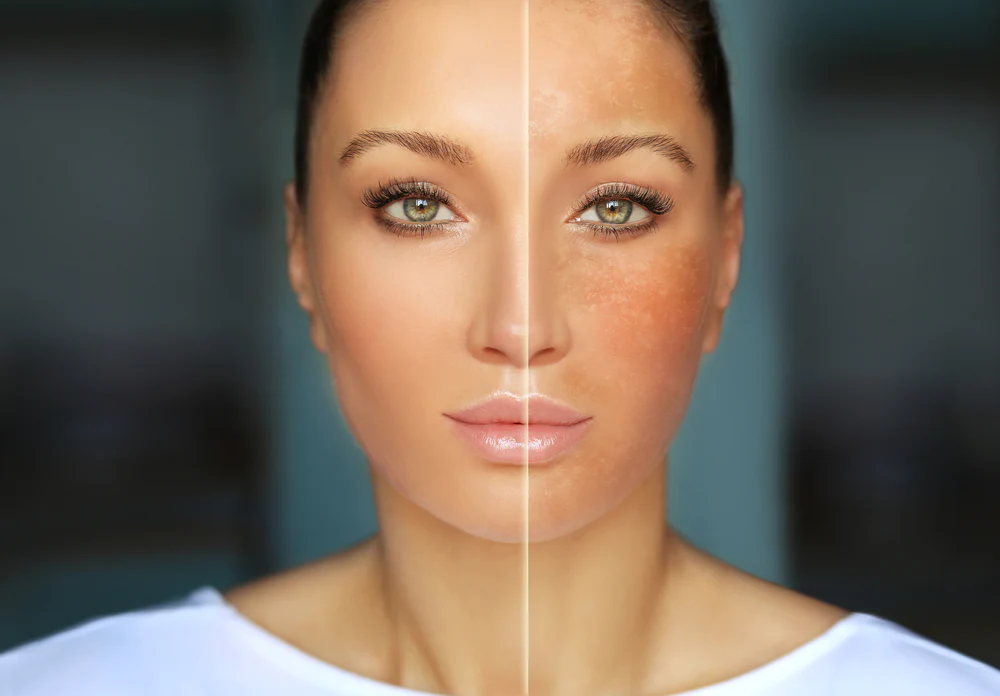
Redness
Often caused by:
- Acne
- Rosacea
- Irritation or sunburn
Solution:
Use a green corrector in small amounts over red spots.
Dark Circles
These are usually bluish or purple and can be genetic or from fatigue.
Solution:
Peach (fair/light skin) or orange (medium/deep skin) cancels out this darkness.
Hyperpigmentation
Can come from:
- Scars
- Hormonal shifts
- Sun damage
Solution:
Yellow or peach-toned correctors work best.
Dullness or Sallowness
This gives skin a lifeless or yellow-grey tone.
Solution:
Use a lavender corrector to brighten and balance.
Corrective Makeup for Face: Which Shades to Use
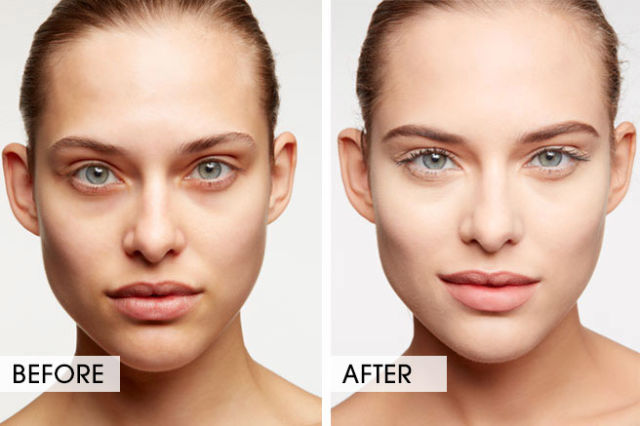
Here’s your cheat sheet for common color correctors:
- Green: Redness (pimples, irritation)
- Peach/Orange: Blue or purple dark circles
- Yellow: Mild redness, purple bruising
- Lavender: Yellow undertones, dull skin
- Pink: Brightens dull skin in fair tones
Pro tip: Mix shades to match undertones more closely.
Basic Corrective Makeup Techniques Every Pro Should Know
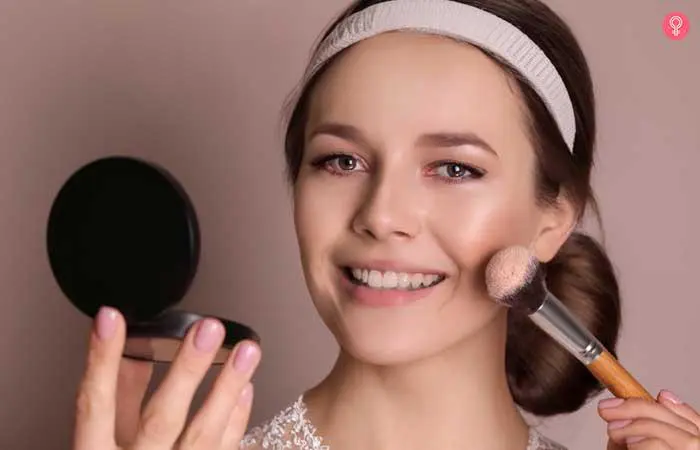
Here’s how to apply color correctors like a professional:
1. Skin Prep First
- Cleanse the skin
- Moisturise well
- Apply a smoothing primer
2. Spot Application
- Use a small brush or clean finger
- Tap product only where needed
- Keep layers thin
3. Blend Properly
- Use a damp sponge or stippling brush
- Tap, don’t drag
- Let it dry slightly before adding anything on top
4. Foundation and Concealer Layering
- Choose light to medium coverage foundation
- Apply in thin layers over the corrected area
- Concealer only if needed (tap it on, don’t rub)
5. Set for Longevity
- Use a light translucent powder
- Finish with a setting spray
- Avoid rubbing the skin throughout the day
Choosing the Right Color Correcting Products for Your Skin Type
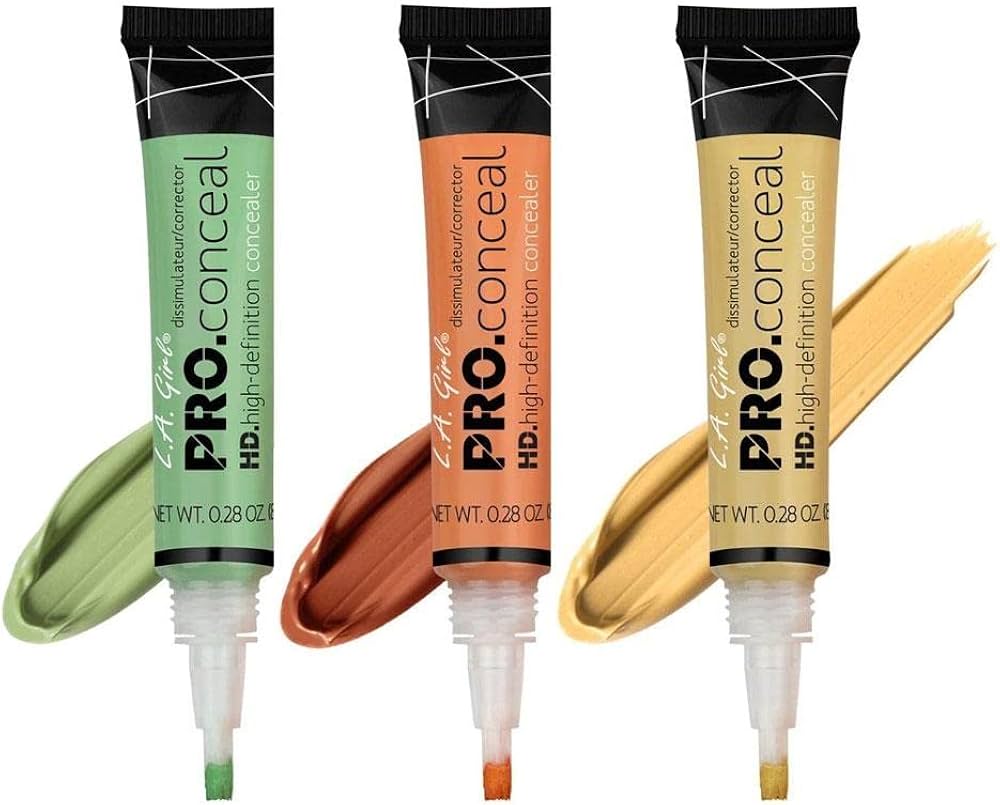
Different skin types = different formulas.
Oily Skin
- Stick or liquid formulas
- Look for matte finishes
- Avoid heavy cream textures
Dry Skin
- Cream correctors
- Hydrating base products
- Avoid powdery finishes
Combination Skin
- Spot correct with different textures
- Powder for oily areas, cream for dry
Sensitive Skin
- Fragrance-free
- Patch test first
- Avoid layering too many products
Corrective Makeup Look: Tips for Achieving a Natural Finish
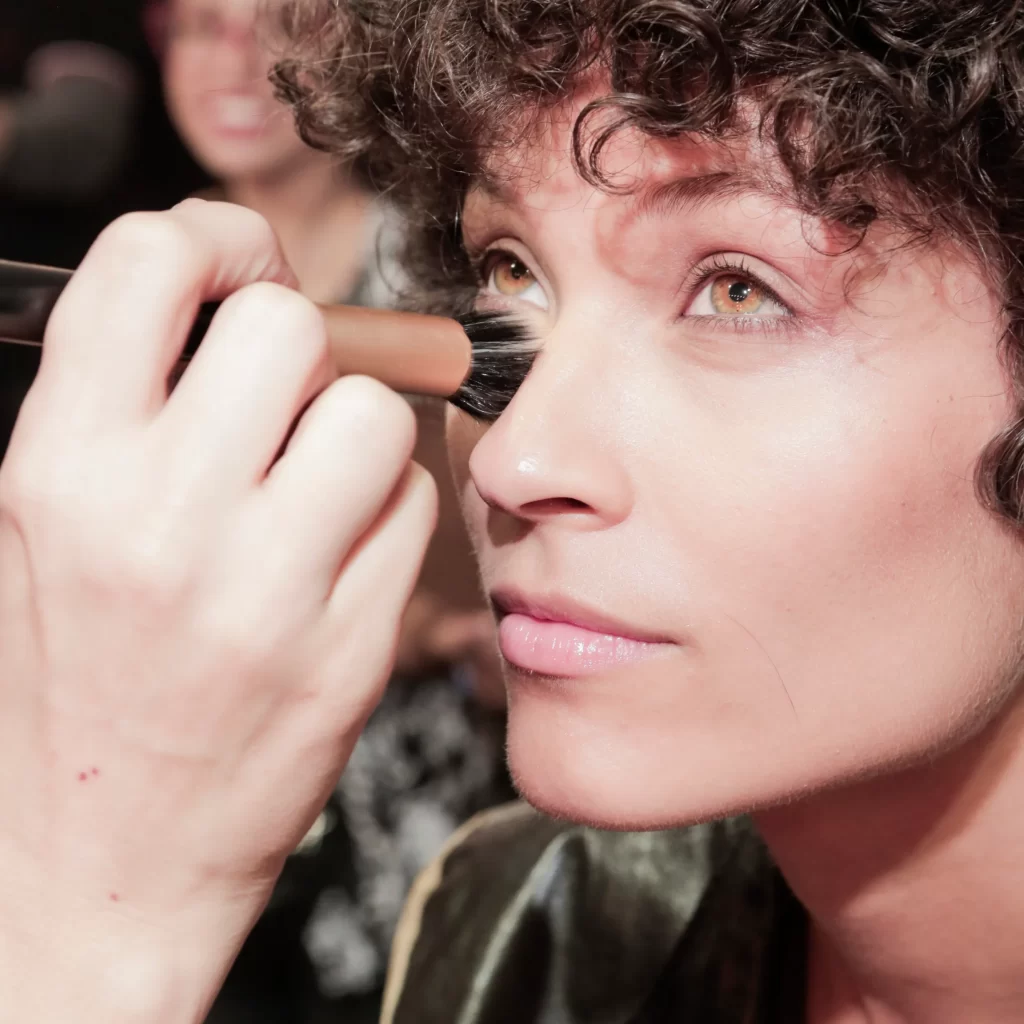
Want your makeup to still look like skin?
- Don’t overdo it — less is more
- Focus on neutralising, not covering
- Match your foundation to your corrected skin, not your natural tone
- Use soft lighting when applying to avoid harsh contrast
Common Mistakes in Color Correction Makeup (and How to Avoid Them)
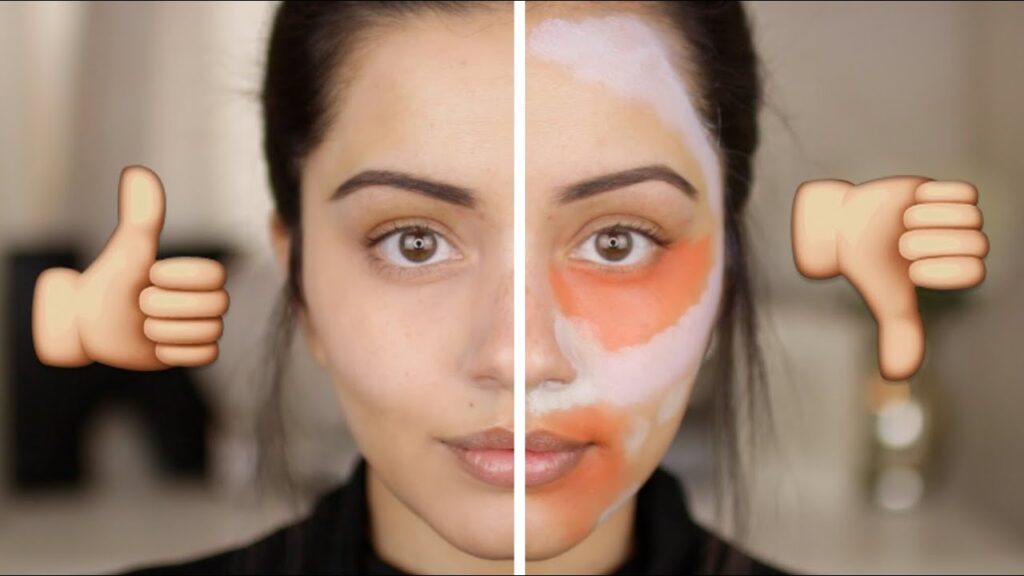
- Using too much product → Leads to cakey, heavy makeup
- Wrong shade choice → Can make the problem worse, not better
- Skipping blending → Leaves obvious patches
- Layering too fast → Let corrector set before foundation
Mixing Color Correctors for Custom Solutions
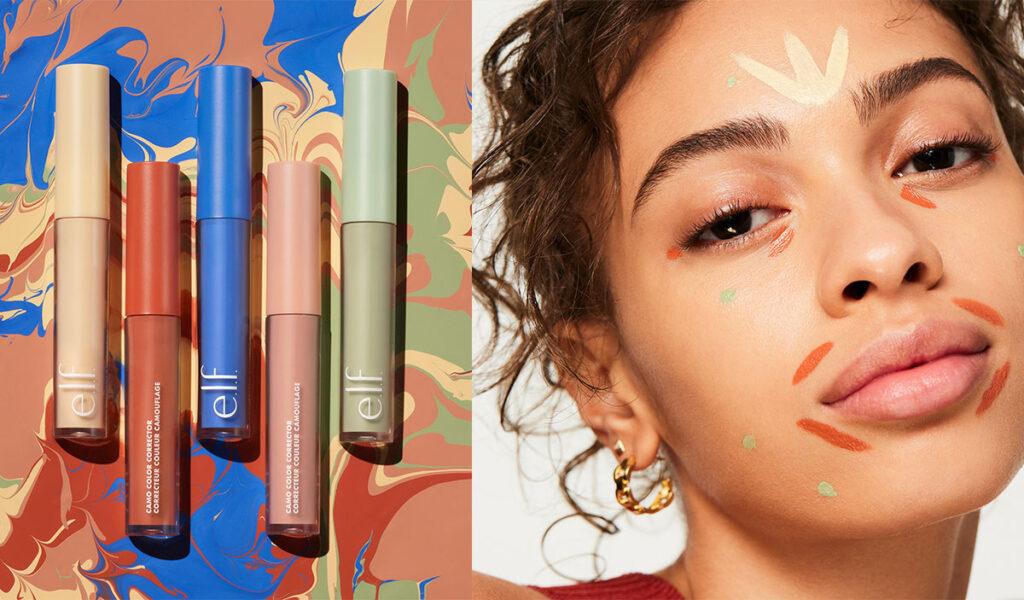
Every face is unique — so don’t be afraid to blend:
- Mix peach and orange for in-between skin tones
- Add a drop of moisturiser to sheer out high-pigment correctors
- Use a mixing palette for better control
Multi-Use Products With Color Correction Benefits
Look for:
- Primers with built-in color correction
- CC creams that adjust to tone
- Concealers with correcting pigments
These are great for day-to-day wear or touch-ups.
Corrective Makeup for Different Features
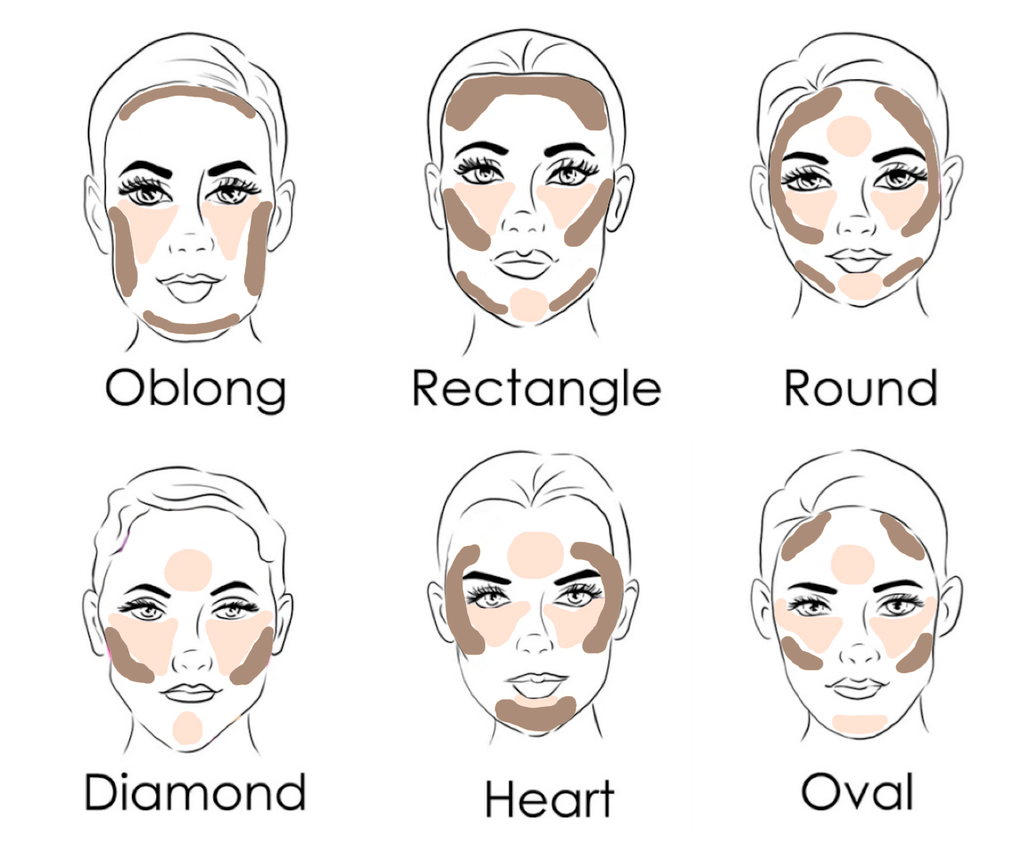
Eyes
- Use peach/orange correctors under the eyes before concealer
- Avoid thick layers — the eye area creases easily
Lips
- Use foundation or color corrector around the lip line to reduce darkness
- Apply concealer at the center of lips to create a plumper illusion
Nose & Chin
- Correct redness around the nose with green
- Brighten dull chin with lavender or peach
Ready to Master Corrective Makeup?
At Bela Beauty College, we don’t just teach makeup — we teach transformation. Our professional makeup courses cover:
- Color theory
- Corrective techniques
- Product knowledge
- Application methods
Whether you’re a beginner or a working MUA, our online makeup courses give you the skills to create flawless looks for every face.


